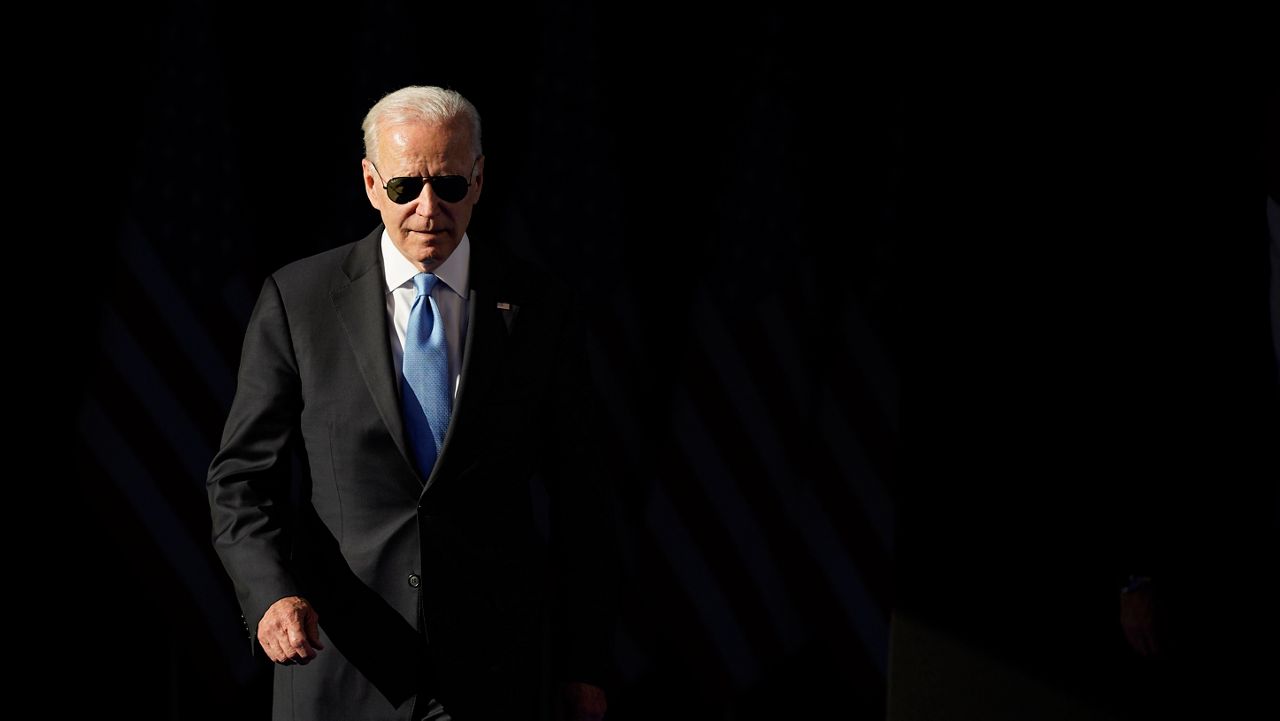President Joe Biden will set off on a six-day trip to Latin America next week, where he is set to travel to Peru and Brazil to attend international summits and make a stop to visit the Amazon rainforest as the sun sets on his time in the Oval Office. The White House announced the trip in a statement on Thursday.
His visit to the rainforest will make him the first sitting U.S. president to make such a stop and comes as Biden looks to cement his legacy before leaving the White House.
The president will start his travels on Thursday, when he will head to Lima to meet with Peruvian President Dina Boluarte. In Peru, he will also attend the annual Asia-Pacific Economic Cooperation summit – which Biden hosted last year in California – where he will focus on U.S. engagement with the Indo-Pacific, White House Press Secretary Karine Jean-Pierre said in a statement.
Throughout his term in the Oval Office, Biden has placed a particular emphasis on strengthening ties with U.S. partners in the Indo-Pacific region amid rocky relations and intensifying competition with China. In September, the president hosted the leaders of the so-called Quad, which include the Indo-Pacific nations of Australia, India and Japan, for a summit at his personal home in Delaware, a gesture that White House said was intended to signify the importance of the relationships. The president individually hosted all three of those countries’ leaders for formal state visits and dinners at the White House.
Biden is set to be in Peru until Saturday before heading to Manaus, Brazil to become the first sitting U.S. president to visit the Amazon rainforest. There, he will “engage with local, indigenous, and other leaders working to preserve and protect this critical ecosystem,” Jean-Pierre said.
Afterwards, Biden will be in Rio de Janeiro to meet with Brazilian President Luiz Inácio Lula da Silva and attend the Group of 20 summit.
“During the G20, President Biden will demonstrate the strong value proposition of the United States to developing countries and lead the G20 to work together to address shared global challenges like hunger and poverty, climate change, health threats, and developing country debt burdens," Jean-Pierre wrote of that leg of the trip.
Chinese Foreign Ministry Spokesperson Hua Chunying announced on Friday that China’s Xi Jinping will also travel to Peru and Brazil to attend the APEC and G20 summits after the leader sat out the G20 last year, skipping what was thought to be a chance for he and Biden to sit-down in person.
The two world leaders later met for hours in November last year on the sidelines of the APEC summit in California, where they emerged touting agreements on better communications between their militaries and combating illicit fentanyl production after a period of particularly tense relations between the two global superpowers.
Biden’s attendance at the pair of foreign summits – bringing together leaders of critical regions like the Indo-pacific as well as the world’s largest economies – gives the former Senate Foreign Relations Committee Chair a chance to put a stamp on a policy area that was a major focus of his more than five-decade-long career in politics. It’s also an opportunity to connect one last time as president with foreign counterparts and make clear his view of America’s place on the world stage as Republican Donald Trump prepares to return to the White House after defeating Democratic Vice President Kamala Harris in this week’s election.
Biden, who defeated Trump in 2020 and ran against him in 2024 until the he dropped his reelection bid in July, recently claimed that the rest of the world was “scared to death” about the possibility Trump will assume America’s highest office again. World leaders around the globe took to social media to congratulate Trump on his victory this week and the former president has reportedly spoken to many of them on the phone in the days since.
As Biden is winding down his time in office, he is putting a focus on legacy defining priorities and looking to fulfill long-held promises. Last month, for instance, the president made good on his pledge to visit Indian country when he stopped in the Gila River Indian Community to formally apologize for a 150 year era in U.S. history in which the federal government took Indigenous children from their parents and sent them to boarding schools. In early December, he is set to fulfill his promise to visit Africa with a trip to Angola.



